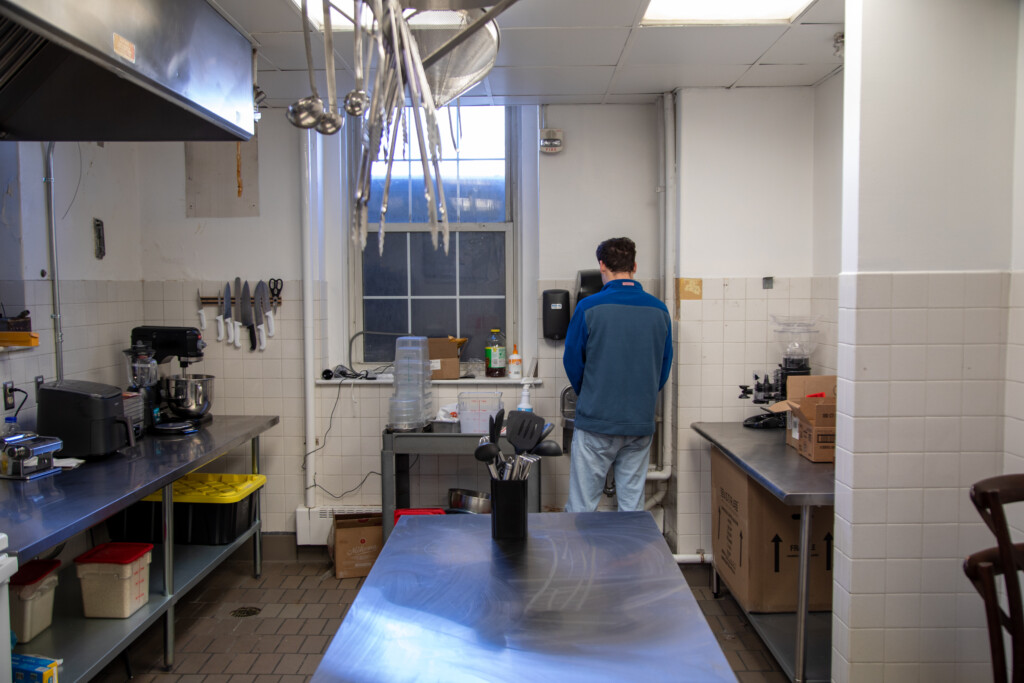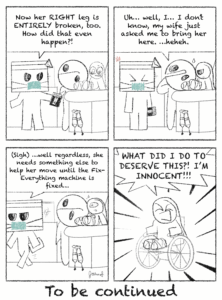A panel discussion addressing Mel Gibson’s controversial film “The Passion of the Christ” and its relationship to the Passion Narratives of the New Testament was held at the Interfaith Chapel on March 18. The Beaven Lecture, “Jesus, The Passion, & History,” examined the issues that have ignited emotions and debate, particularly the historical accuracy of the movie, the accusation of anti-Semitic sentiments in the film and the use of graphic violence.Though they hit many of the same points, the panelists stressed the flaws of Gibson’s work through separate approaches. Still, all share the same opinion – “The Passion” is a work of personal religious expression but not historical fact.The panel included Curt Cadorette, Anne Merideth and William Herzog. Cadorette is the Associate Professor of Religion and a John Henry Newman Professor of Roman Catholic Studies at UR. Also at UR, Merideth is an assistant professor in the Religion and Classics Department. Herzog is the Sallie Knavler Crozer Professor of New Testament at Colgate Rochester Crozer Divinity School. The panel was moderated by Dean of The College William Green, who is also the Philip S. Bernstein Professor of Judaic Studies and a professor of religion and classics.Gibson’s sources were called into question at the discussion. Gibson interprets and combines multiple narratives of the Gospels as he chooses. Even though Merideth sees the Gospels as powerful witnesses, they themselves differ and were written at various times for various readers. “The problem of interpretation extends to the gospels,” Merideth said. “You can’t make easy claims about their historical accuracy.” Cadorette focused on Gibson’s non-biblical inspirations including St. Anselm of Canterbury, St. Anne Catherine Emmerich and Gibson’s own doctrine. Cadorette said these sources represent Gibson’s interpretation only. “It’s all quite contrived. It’s meant to pull you in – nothing pulls you in more than a controversy,” Cadorette said. He later added, “This is a wonderful medium for proselytizing.”Critiquing Gibson’s portrayal of Pontius Pilate, the panelists turned to the historical scholars of the time. Herzog said Gibson made the Roman governor into a concerned ruler instead of the tyrant he was said to be. Herzog saw the film as anti-Semitic because it blames the Jewish people as a whole instead of blaming the Roman leader and the Jewish elites. “The conflict was between rulers at the center and a prophet at the periphery,” he said.Gibson’s use of violence was excessive to the panelists. Herzog found the violence and the public’s reaction to it disturbing. “Something has happened in our culture that makes this possible,” he said.”Death engages us,” Merideth added, agreeing with Herzog.Placing too much emphasis on the violence and suffering of the crucifixion takes away from the bigger picture, according to the panelists. It’s how Gibson presents the material from the life of Jesus that panelists disagreed with. Herzog said, “What does the crucifixion mean if we don’t know why He was crucified? It’s understanding why He was crucified and raised and what was crucified and raised. We ignore the life of justice and prophetic ministry.”Students thought the discussion was insightful and educational, but many wished to hear more debate and less agreement among the panelists. This was apparent in the questions presented to the panelists and in the reaction of students after the conclusion. Sophomore Micha Elsner liked hearing an academic approach to the subject but felt there was a lack of balance. “It was interesting but rather one-sided,” Elsner said. “I would have preferred to hear a more conservative Christian view in addition.””Whether I agreed with it or not, I still learned a lot,” freshman Nathan Osorio said. When Osorio watched the film, he said it was an emotional and powerful experience. He said the graphic nature of Gibson’s movie was honest and showed the pain Jesus had to endure. Osorio also wanted to hear another opinion, possibly from a Catholic or Rabbi who liked the film. “Each gave their own opinions and certain facts but they all agreed with each other,” he said.Some students were interested in the scholastic approach the panelists placed on the Gospels and Pilate. Senior Kristy Huh thought “The Passion” was too gory and was interested in learning about the biases of Gibson. “It made me more aware of the debate or controversy over this whole movie,” she said.”I’m really glad they had something like this,” Take Five Scholar Kelly Wentworth said. “I think I’m leaving with a lot of questions, but it’s a positive thing.”Chlarson can be reached atschlarson@campustimes.org.
ADP
Gibson's "Passion" sparks controversy
After losing their personal chefs and having their commercial-grade kitchens closed for two months, Fraternity Quad residents’ kitchens were reopened near the end of October. Read More
Campus Times
Gibson's "Passion" sparks controversy
In my final weeks as the Publisher of the Campus Times, I am writing “The State of the Campus Times” — a report on the progress and challenges of our student-run newspaper — for the final time before handing the baton to the next Publisher. Read More


